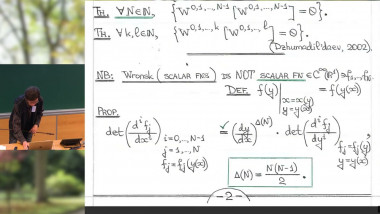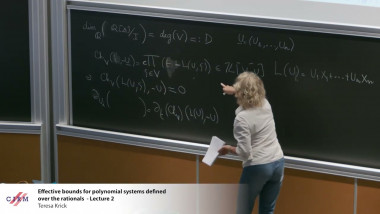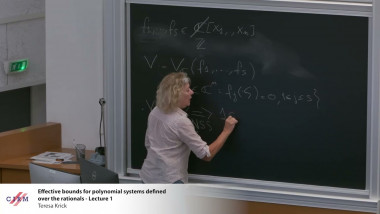
The Wronskians over Multidimension and Homotopy Lie Algebras
By Arthemy Kiselev

Epstein's construction and holography of Loewner energy and Schwarzian action
By Yilin Wang

Effective bounds for polynomial systems defined over the rationals - lecture 2
By Teresa Krick

Effective bounds for polynomial systems defined over the rationals - lecture 1
By Teresa Krick

Artinian Gorenstein Algebras With the Weak Lefschetz Property (2/4)
By Saremi Hero











